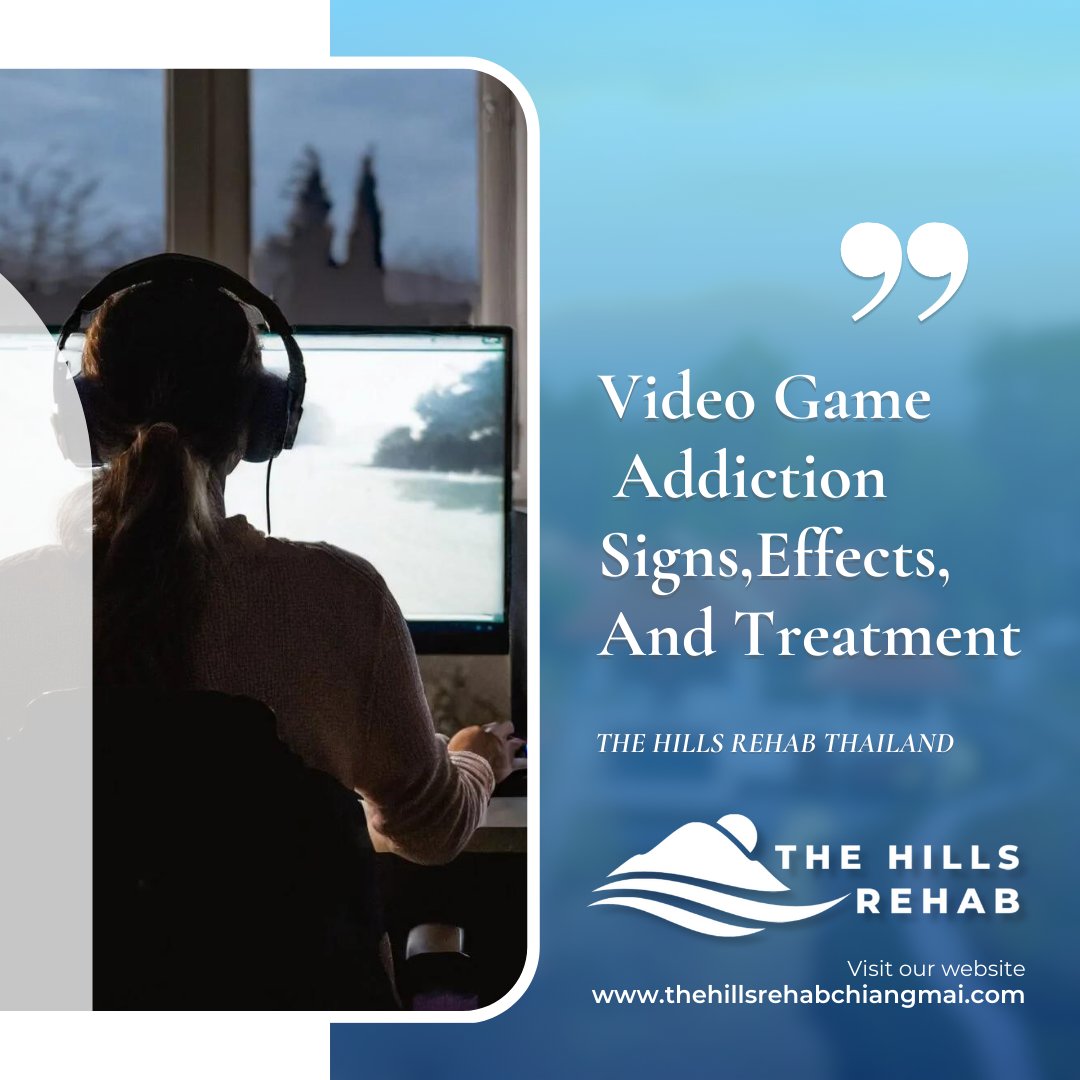Video Game Addiction
Introduction
In our modern digital age, video games have become a prevalent form of entertainment and leisure. While most people can enjoy gaming in moderation, some individuals find themselves trapped in the grip of video game addiction, also known as internet gaming disorder. In this blog post, we’ll delve into what video game addiction is, who it affects, its common symptoms, potential causes, diagnosis, treatment options, and preventive measures.
What is Video Game Addiction?
Video game addiction, or internet gaming disorder, is a condition characterized by an individual’s severely reduced control over their gaming habits. This addiction can lead to negative consequences in various aspects of life, including self-care, relationships, academic or work performance, and overall well-being. While video game addiction can involve gaming on any electronic device, it predominantly affects those who engage in online gaming.
The debate among researchers revolves around whether video game addiction should be classified as an addiction or mental illness. Some liken it to behavioral addictions, such as gambling disorder, where the thrill of winning becomes a driving force. Others argue that this comparison is flawed since video games do not involve financial or material losses and often require cognitive skills and reflexes.
Who Does Video Game Addiction Affect?
Video game addiction can impact individuals across different age groups, from children and teenagers to adults. However, adults are more likely to be affected by this condition, with males being at a higher risk compared to females.
How Common is Video Game Addiction?
The prevalence of video game addiction varies widely among estimates, ranging from 1.7% to 10% of the U.S. population. This variation stems from disagreements among researchers regarding the diagnostic criteria for internet gaming disorder.
Symptoms and Causes

Signs and Symptoms of Video Game Addiction
Recognizing video game addiction is crucial for timely intervention. Common signs and symptoms include
- Poor performance at school, work, or household responsibilities due to excessive gaming.
- Withdrawal symptoms like sadness, anxiety, or irritability when gaming is restricted.
- An increasing need for more gaming time to achieve the same level of enjoyment.
- Sacrificing previously enjoyed activities and social relationships for gaming.
- Unsuccessful attempts to reduce gaming time despite negative consequences.
- Lying about the amount of time spent gaming.
- Decline in personal hygiene and grooming due to excessive gaming.
- Using games as an escape from stress or conflict.
- Using games to cope with negative emotions like guilt or hopelessness.
If you or someone you know experiences these signs, seeking help from a healthcare provider or mental health professional is crucial.
What Causes Video Game Addiction?
Researchers are still exploring the precise causes of video game addiction. One prevailing theory suggests that playing and winning video games trigger the release of dopamine, a neurotransmitter associated with pleasure and motivation. This parallels the neurological similarities observed between individuals with video game addiction and those with substance use or gambling disorders.
Diagnosis and Tests
Diagnosing video game addiction typically involves consultation with a mental health professional, such as a psychologist or psychiatrist. These professionals rely on the American Psychiatric Association’s Diagnostic and Statistical Manual of Mental Disorders (DSM-5) to diagnose mental disorders, which includes criteria for internet gaming disorder. Diagnosis usually requires that gaming behaviors significantly impair personal, social, educational, or occupational functioning and persist for at least one year.
Management and Treatment
Treatment for video game addiction primarily revolves around psychotherapy, or talk therapy. Several approaches can be effective
- Cognitive-Behavioral Therapy (CBT): CBT helps individuals identify and change negative thoughts and behaviors associated with gaming addiction. It promotes healthier thinking patterns and habits.
- Group Therapy: Group therapy sessions provide moral support and motivation for those dealing with video game addiction, especially if they’ve isolated themselves from friends and peers.
- Family or Marriage Counseling: Involving loved ones can help educate them about the disorder and create a more stable home environment.
For those with underlying mental health conditions, such as depression or anxiety, medications may be recommended to address the symptoms.
Prevention
Understanding the risk factors associated with video game addiction is essential
Psychological risk factors
- Impulsivity
- Low self-control
- Anxiety
Behavioral risk factors
- Increased spending on gaming
- Extending weekday gaming hours
- Active participation in offline gaming communities
- Membership in gaming communities
While not everyone who plays video games is at risk of addiction, it’s crucial to monitor your gaming habits. If you notice neglect of daily activities, such as personal hygiene, social interactions, school, or work, it may be an early sign of video game addiction.
Living With
If you suspect video game addiction in yourself or a loved one, don’t hesitate to consult a healthcare provider or mental health professional. A timely diagnosis and commitment to the treatment plan are vital steps toward recovery.
Conclusion
Video game addiction is a real and increasingly recognized concern in our digital era. It can have profound impacts on individuals’ lives, affecting their mental, social, and physical well-being. By understanding the signs, seeking professional help when needed, and promoting responsible gaming habits, we can mitigate the risks and ensure that gaming remains a source of enjoyment rather than addiction.
Free Consultation
Are you in need of assistance on your journey to recovery? Contact us. We are here to help. At our reputable rehab center, we offer a complimentary consultation to provide guidance and support tailored to your specific needs.
Contact Us
"*" indicates required fields






